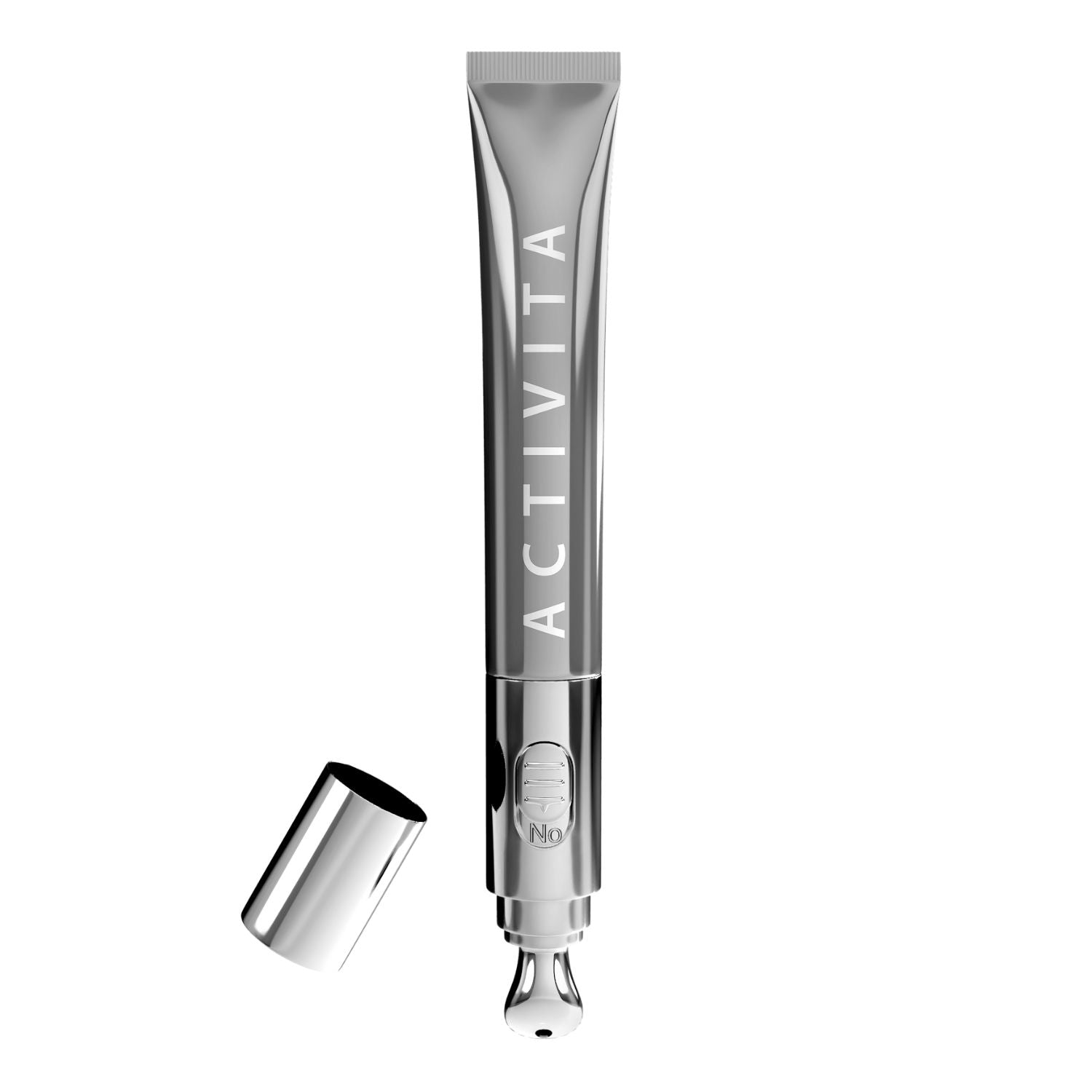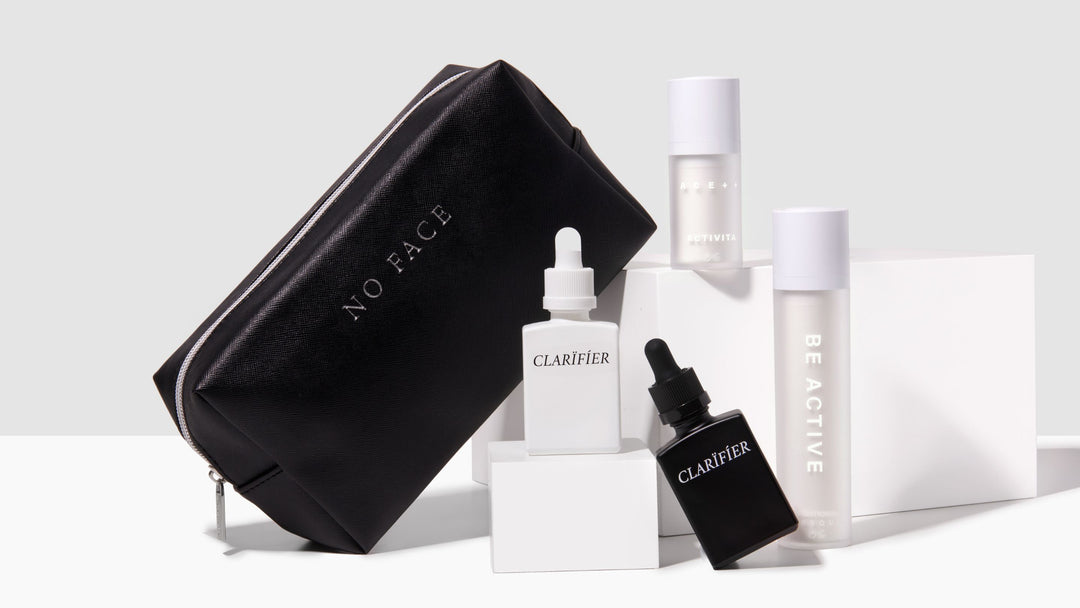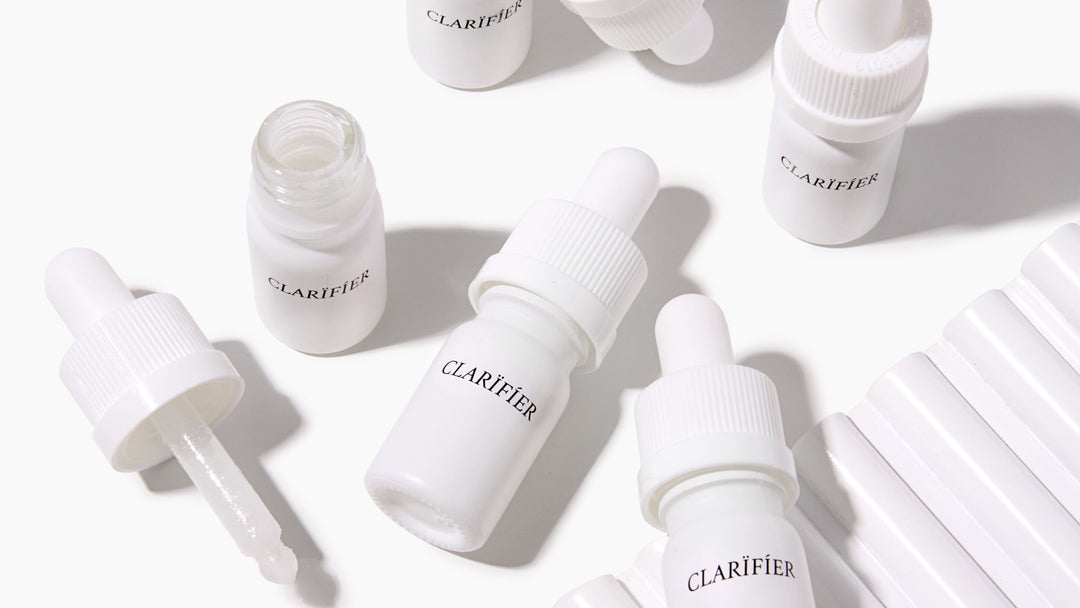Ultimate Guide to Sensitive Skin Routines

Sensitive skin can be hard to manage, especially when it’s hard to pinpoint exactly what is causing the skin sensitivity. It could be a part of your genetic skin type, or maybe it results from damage from your environment or skincare products. Whatever your cause, we're going to lay down just how to repair and nourish your sensitive skin by implementing a science-backed skincare routine. In most cases, sensitive skin is on the drier side. However, if you have sensitive, oily skin, you can check out our article here.
What is Sensitive Skin?
There are many different types of sensitive skin, each with its own array of potential causes. Some skin sensitivities, like eczema, psoriasis, or rosacea, are genetic. These skin disorders are generally not curable but are treatable with an effective skincare routine. Non-genetic types of sensitive skin are typically caused by damage to the skin barrier. In these cases, we're looking at overly dry skin that has suffered barrier damage from excessive exposure to environmental factors such as sun, wind, heat or cold. The use of harsh chemicals or rough handling of your skin could also lead to a damaged barrier, causing increased sensitivity.
What is a skin barrier, and why is it important?
You should think of your skin barrier as your natural protection against the elements. Your stratum corneum, or outer layer of skin, is made up of tough skin cells known as corneocytes, which are bound together to keep moisture in and bacteria out. This barrier is essential for keeping you hydrated. However, a damaged barrier will struggle to function correctly, leaving skin susceptible to bacteria, pollutants and dehydration.
What might damage my skin barrier?
Many things can damage your skin barrier, both externally from your environment and internally. External factors include prolonged exposure to an environment that’s too humid or too dry, irritants or pollutants, excessive sun exposure, using skincare products that contain drying alcohols or harsh chemicals, or over-exfoliating your face. Internal factors can include not drinking enough water, high-stress levels and genetic factors.
How do I know if my barrier is damaged?
If your skin barrier is damaged, your skin might feel overly dry or “tight”, especially first thing in the morning. You may also experience breakouts, enlarged pores, redness, itching, peeling, flaking or other uncomfortable symptoms. Fortunately, these symptoms can be relieved by implementing a good skincare routine, and over time, your skin will become less sensitive.
How to Treat Sensitive Skin?
First and foremost: it’s essential to be gentle with your sensitive skin, both with the products and methods you use when treating it. Your damaged barrier is already struggling to function, so the use of abrasive scrubbing tools or harsh chemicals will cause further damage. So, you should take a look at your skincare routine and remove any products that may cause irritation or have a drying effect.
What Not to Do
1. Don’t scrub or over-exfoliate
When our skin is rough, dry, or textured, it can be tempting to over-exfoliate to remove the “dead skin”. However, this actually has the opposite effect to what we want. By removing the dead outer layer, we’re making way for new cells to come through. But, these new cells won’t be any more hydrated than the old cells. Exfoliation is just a temporary fix. What we really need to do is treat the cause of dry, flaky, textured skin. This involves hydrating and healing the damaged skin barrier.
2. Don’t wear heavy makeup
It’s not recommended to wear makeup when you have a damaged barrier. However, if you do, it's vital that you remove all traces at the end of the day to allow your skin time to breathe and repair. Keep in mind that you need to be gentle when removing makeup. Some makeup remover tools can be highly abrasive on your skin, so it's best to use your cleanser or a gentle microfibre cloth designed for sensitive skin, like FACEPAL TOUCH. Facepal has been scientifically researched and dermatologically developed for sensitive skin types. The reduced friction fibres gently reach into pores to remove pollution, congestion and makeup without abrasiveness or irritation. You should always follow up cleansing with hydrating products to fortify your skin barrier.
What You Need in Your Sensitive Skin Routine
You will need to fortify your damaged skin barrier by introducing extremely hydrating products into your skincare routine. By refining your skincare routine to suit your skin's exact needs, you will be able to repair your damaged barrier and thus heal your sensitive skin concerns. You will need to use two types of moisturising ingredients to achieve this: humectants and ceramides. Humectants are ingredients that continuously draw moisture into your skin and retain it there. However, humectants can't do it all on their own. They need ceramides to help seal in and retain the moisture in your skin for extended periods of time. Ceramides are essential for fortifying and conditioning your skin barrier and overall improving barrier function and moisture retention. You can implement products with these necessary ingredients at every step of your skincare routine. Here’s what we recommend for your sensitive skin routine.
1. A Hydrating Face Cleanser
"Hydrating" isn't exactly the first word people think of when it comes to face cleanser, but when it comes to sensitive skin, it should be! We primarily rely on our face cleansers to remove impurities, but what if we could add in some of the good stuff simultaneously? That's precisely what H4O™ Resolve HD does! H4O™ is a gentle, non-foaming cleanser ideal for stressed, sensitive skin types. The unique H4O is a deionised water compound with a high level of oxygen. This allows water to penetrate dirt and pollutants without foaming agents, which are not ideal for dry or sensitive skin. H4O™ Resolve HD also contains blue tansy, an incredibly soothing ingredient with antioxidant properties. The blue tansy calms irritated, sensitive skin, reducing redness and inflammation and stress on the barrier.
2. A Humectant to Draw Moisture into the Skin
As mentioned above, humectants are essential to repairing a damaged skin barrier and treating sensitive skin concerns. One of the best humectants for skin hydration is Hyaluronic Acid, which is a complex found naturally in your skin for collagen maintenance and to support your barrier function. However, common hyaluronic acid products on the market have large molecular sizes that are not easily absorbed by your deeper skin layers. In order to achieve increased hydration and skin rejuvenation, it's important to apply a hyaluronic acid serum that is formulated at a similar molecular size to that which is naturally found in our skin. The DERMATOLOGY SCIENCE FORMULA MOLECULAR HYALURONIC ACID HYDRATOR features a combination of multiple molecular sizes of natural hyaluronic acid to fortify your skin barrier by offering multi-dimensional hydration.
3. A Replenishing Moisturiser to Fortify the Skin Barrier
We previously mentioned that humectants need to be followed up with ceramides, and we really want to drive that home! Whilst humectants will draw moisture into the dermis (middle layer of skin), it can quickly be lost if not sealed in properly. Ceramides absorb into the epidermis (outer skin layer) to lock in moisture, so they are best applied immediately after your hyaluronic acid to avoid moisture loss. For a moisturiser designed to deliver barrier building properties and improve damaged, sensitive skin, try ACTIVITA® VITAL CREAM. Formulated using molecular science, the VITAL Cream infuses damaged, sensitive skin cells with much-needed hydration. The micro molecular formula is easily absorbed into your skin, making it perfect for healing a damaged skin barrier.
4. A Deep Conditioning Mask to Boost Hydration
Along with hydrating, it's essential to deeply condition your sensitive skin one to two times per week. A hydrating mask is necessary for giving your skin the extra moisture it needs, which will allow your sensitive, damaged barrier to heal and improve over time. Not all face masks are created equal, though. To properly improve your barrier function, a good hydrating mask should include functional, active ingredients like hyaluronic acid, niacinamide, and Vitamin E. Look for a mask that contains no alcohol, like ACTIVITA BE ACTIVE CONDITIONING MASQUE SKINCARE FACE MASK. This mask has a beautiful light texture that easily soaks into your skin to rapidly hydrate in as little as a minute. The formula consists of a combination of essential vitamins designed to provide instant relief for stressed, sensitive skin. These vitamins condition your skin to adapt to the skin environment, resulting in a more effective barrier function.
NO FACE is an innovative next-generation clean skincare brand. Next-Gen Skincare means NO Toxin, NO Fragrance, NO BS, NO Bias against skin types, NO Unfair treatment to the environment and workers. With patented technologies and researched new ingredients that are more effective, selective, sustainable, and bio-friendly, NO FACE is a leading social impact-aware skincare brand towards 100% sustainability.
For more information, visit NOFACE.SKIN












Leave a comment